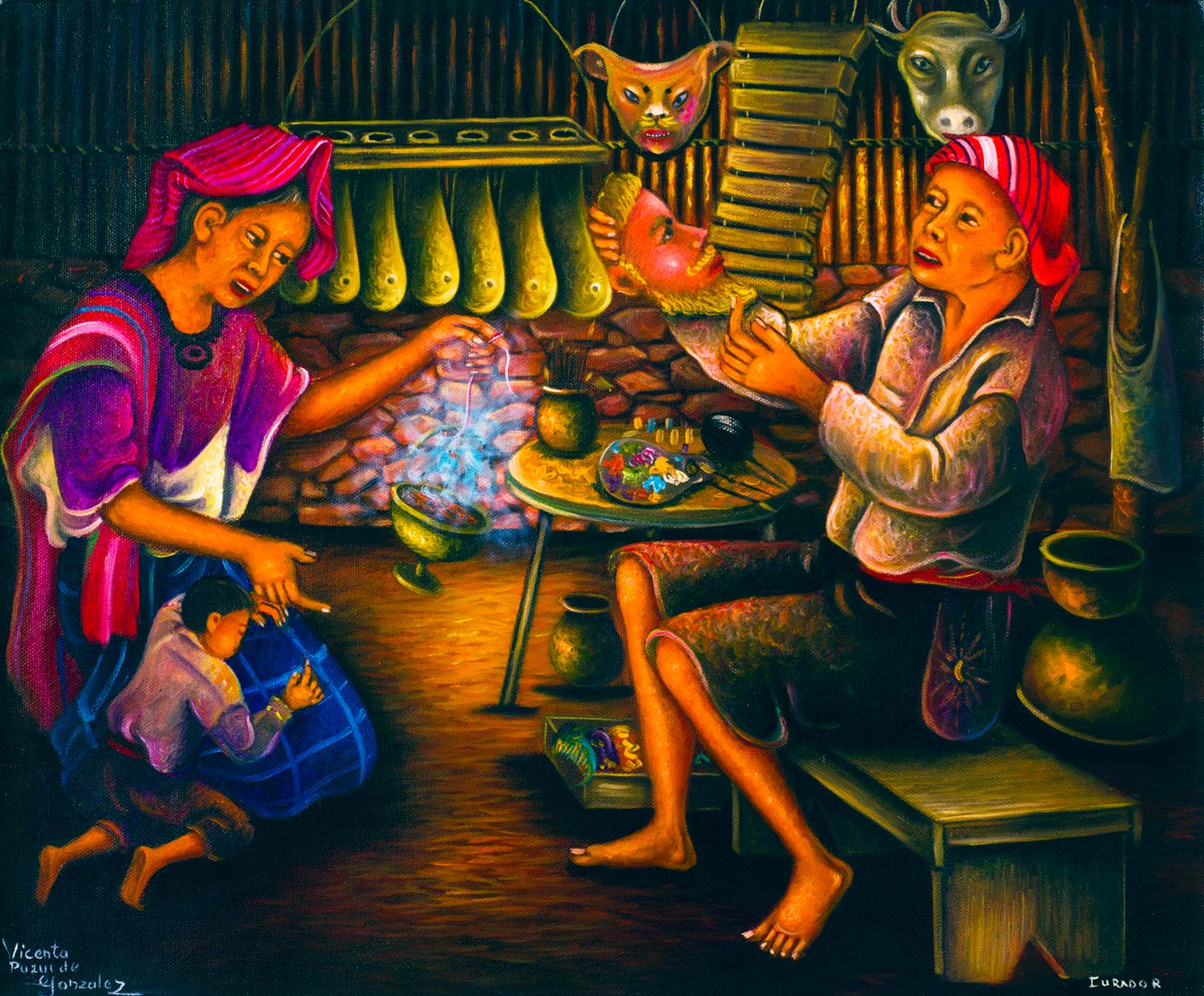A mask maker holds up a mask he has just finished painting, and a female family member blesses it with incense. This mask is special and probably will be used in a healing ceremony for an individual, family, or group—hence the title, Healer.
Morerias are institutions specific to Guatemala where ceremonial masks and costumes can be rented. Morerias are only found in a few towns, including this one—Chichicastenango—which we know from the traje (traditional attire) that Vicenta has depicted. The Ignacio family has run the morerias in Chichicastenango for many generations, and two brothers in that family have competing morerias side-by-side. Both brothers carve masks of the highest quality, and their collections of old masks have been handed down within the family.
In the painting, the wall is adorned with two old masks representing animals. There is also an old-style marimba with a sounding board made out of gourds. It appears to be a one-person marimba which would be supported by a rope from the neck of the musician. Only a few of the oldest men use this type of marimba; the younger men use marimbas with legs. The keyboard and the sounding board hang separately on the wall and will be assembled when needed.
Every aspect of making ceremonial masks for a traditional masked dance is considered sacred. The woodcarver will bless the mask at certain points in the construction process. On propitious days in the Maya calendar blessing will be bestowed by ajq’iijab’ (Maya day-keepers) and the dancers who will wear them. These are ceremonial masks, of much higher quality and significance than the masks sold to tourists in the central market in Chichicastenango on Thursdays and Sundays.


